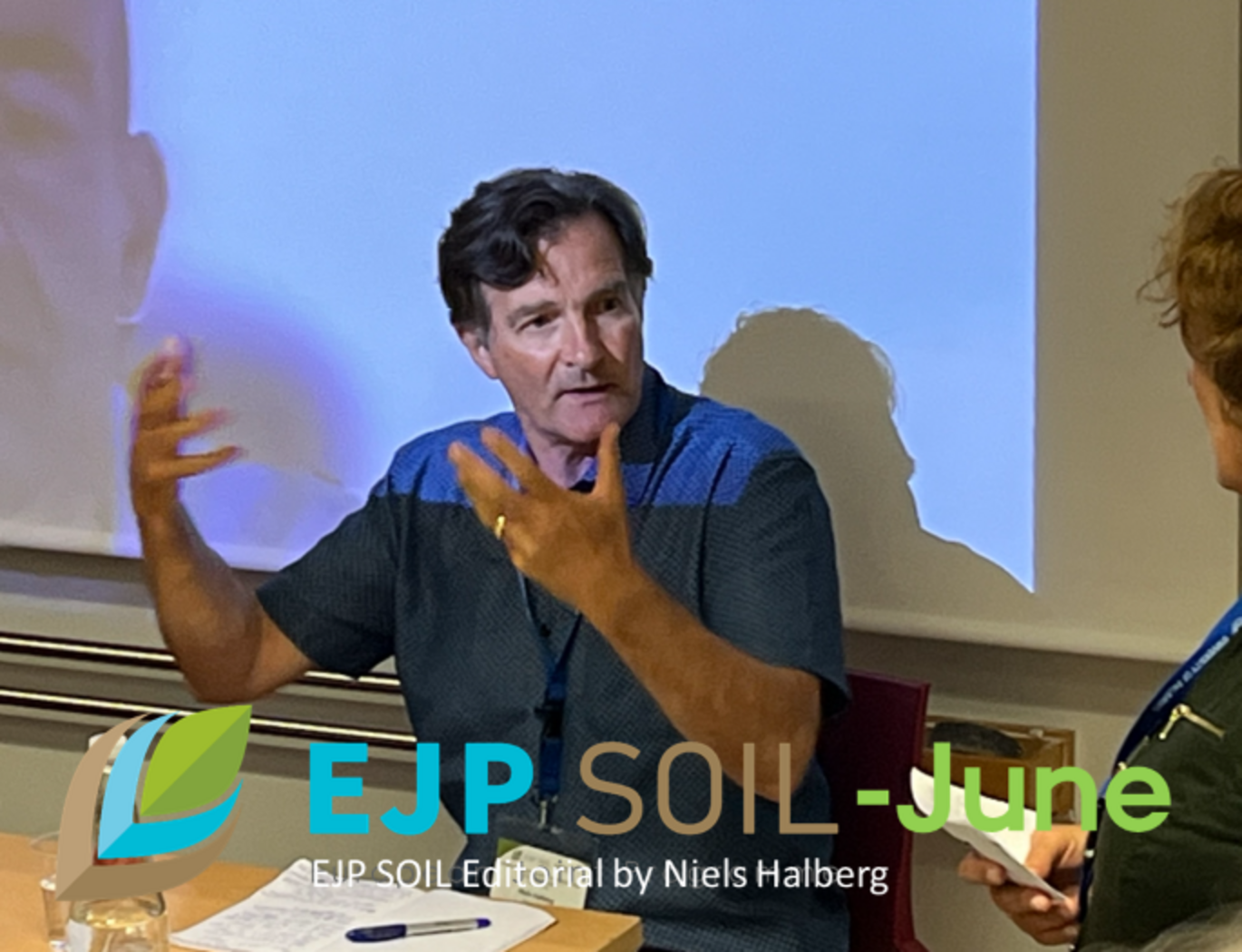EJP SOIL Newsletter editorial - June 2022 – by Niels Halberg, Chair of Board of Programme Managers
The EJP SOIL programme produces strong science based knowledge on soil management in relation to climate change. Activities include integration of existing knowledge as well as funding new research efforts building on a strong community across Europe in collaboration between experienced scientists and the next generation of European soil scientists.

The EJP SOIL Annual Science Days 2022 at UNIPA in Palermo demonstrated the vast achievements of our work after the first two years with the EJP SOIL programme. Among many things, what catches the attention is the high level of integration of knowledge across European soil science groups, and the successful launching of co-funded research calls based on a thorough Roadmap of knowledge needs for soil management in relation to climate change mitigation and adaptation. What also stands out is the strong community, which we are building across Europe consisting of experienced scientists and the next generation of European soil scientists including PhD students involved in EJP SOIL programs and research schools. This is very promising for the soil science in regards to both fulfilling the objectives of the EJP SOIL programme but also for the future role that EJP SOIL can play towards the objectives of the fifth EU Mission ‘A Soil Deal for Europe’.
Given the overwhelming policy interest for soils – from soil carbon sequestration to broader aspects of soil health and ecosystems services – EJP SOIL has proven to be a very pertinent and necessary partnership and our results are awaited for science advice at the member state and at commission level and for practical applications.
Building on the many papers that integrates existing knowledge, the EJP SOIL has a good baseline to provide information to policymakers. The necessary next step is to strengthen the integration of the new knowledge provided by our funded projects and ensure synthesizing for use in e.g. Soil Mission and development of Climate-smart farming practices.
EJP SOIL has from the onset considered the importance of science to policy advice and we will develop this in consideration of different contexts among member states and the EC – and in collaboration with other players such as JRC and the EUSO. Just as we are consolidating trans-European research collaboration, we should further develop the governance structures for providing policy advice based on joint collaboration among EJP Soil partners and based on conscious synthesis across the different scientific results from individual projects. Thus, providing access to recommendations, tools, and knowledge to those who give advice at member state level could best build on a joint knowledge pool to ensure quality and consistency while taking into account national and regional differences. Providing policy advice in this important area of supporting the development and regulation of carbon farming and climate adaptation, should be based –as much as possible - on a trans-European knowledge pool facilitating that advice does not differ coincidently from country to country.
The EJP SOIL programme is intentionally organised as a science based organisation with a focus on building new knowledge and understanding ; -for later implementation. This knowledge needs to be valorised in different contexts also outside EJP Soil such as within activities organised by the Soil Mission, for example in the form of Living Labs. The implementation plan of the Mission 'A Soil Deal for Europe' foresees the establishment of 100 large scale living labs, where soil related challenges are discussed in dialogues between stakeholders. Thus, EJP SOIL’s knowledge input may be valorised by – among others - the farmers and advisers, in the different contexts across different regions of Europe.
The EJP SOIL has a major role to play, as partners of our consortium has taken responsibility to assist the Soil Mission secretariat in setting up the mission activities including the basics of Living Labs and knowledge exchange and engagement of so-called Soil Advocates.
The EJP SOIL has established a number of national soil hubs with stakeholders across Europe. National hub members represent the breath of national key stakeholders. Their role is to engage in the EJP SOIL programme by providing feedback, voicing national positions and needs, and contributing to, and learning from the work done in EJP SOIL research activities. This involvement of national hubs will form the basis of rolling that model out to potentially all EC and other countries, potentially broadening the focus from soil and climate so it fits more to the soil health focus of the Soil Mission.
Obviously, the EJP SOIL is only half way and it is all still work in progress, but as the Chair of the Board of Programme managers, I am really looking forward to seeing the new and integrated results across the projects in what is a historically unique trans-European programme in soil science.
I believe that the experience we have is very valuable, and we are on a good track. Nevertheless, there are still a lot of research results yet to achieved, and with these upcoming results, it is our clear intention to contribute to the Soil Mission and to rolling out the attempt to insure soil health in the future.
For more information:
Niels Halberg, niels.halberg@dca.au.dk